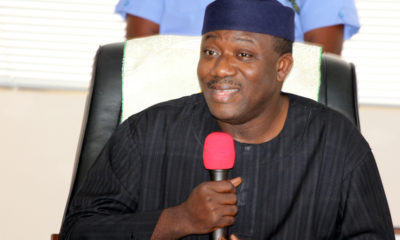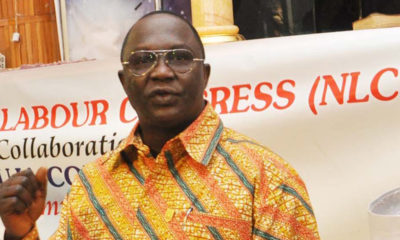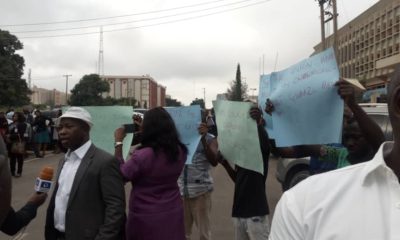- NLC to Protest 27,000 Minimum Wage at National Assembly on Monday
The Central Working Committee of the Nigeria Labour Congress on Friday said it would mobilise its members to the National Assembly on Monday to protest against the N27,000 minimum wage bill transmitted to NASS by the Federal Government.
The body claimed that the N30,000 agreed by the tripartite committee that deliberated on the issue must be respected.
At the end of the NLC CWC meeting at the national headquarters of the NLC in Abuja, the president of the union, Ayuba Wabba, who addressed the media, said the union would take action against the bill if the protest failed to produce the desired result.
The Federal Government adopted the N27,000 minimum wage after the Council of State meeting recommended that N27,000 should be paid as minimum wage to civil servants in states while federal civil servants get N30,000.
Wabba said the FG or any other body lacked the power to change the figure that was earlier agreed on by the tripartite committee except a process was followed by all parties concerned.
He said what the FG had done was against the convention of the International Labour Organisation.
The labour chief said, “The meeting deliberated on one item, which is the issue of the transmission of the national minimum wage bill to the National Assembly. “The meeting reviewed the whole situation, including the fact that N30,000 was agreed at the tripartite negotiating meeting to be the minimum wage.
“Going by the convention of the ILO, the figure that was agreed on by the tripartite committee cannot be changed by any of the parties except through a process. Government as an employer cannot unilaterally change the figure. This is about law and procedure. Therefore, the CWC has rejected the issue of reducing the figure. We still maintain that we stand on the outcome of the tripartite committee.
“We will mobilise our members and engage the National Assembly on the issue. The negotiation must be respected and NASS should do the needful.
“We have put our members on the alert that if that is not done, certainly we will take action to protect and ensure that the tripartite process is respected. That has been the process according to the provision of ILO convention on minimum wage mechanism.”
Wabba added, “When you look at N30,000, it is a compromised position in the context of today’s economy of Nigeria. We should be commended. As far back as 2011, the N18,000 minimum wage was equivalent to $150, but today, the N30,000 is less than $100.”
But the FG said the report and recommendation of the tripartite committee that deliberated on the new minimum wage was not binding on it as it had the final say over what the minimum wage would be.
In a statement by Assistant Director, Federal Ministry of Labour and Employment, Iliya Rhoda, the FG said, “As the matter of a National Minimum Wage is in the Exclusive Legislative List as item No. 34 of the Second Schedule to the 1999 Constitution of the Federal Republic of Nigeria (as amended), it is therefore the executive arm of government that has the responsibility to prescribe a new National Minimum Wage and send to the National Assembly for legislative action.”

 Forex3 weeks ago
Forex3 weeks ago


 Naira2 weeks ago
Naira2 weeks ago
 Billionaire Watch2 weeks ago
Billionaire Watch2 weeks ago




 Naira2 weeks ago
Naira2 weeks ago




 Naira4 weeks ago
Naira4 weeks ago




 Naira2 weeks ago
Naira2 weeks ago


 Naira1 week ago
Naira1 week ago
 Banking Sector4 weeks ago
Banking Sector4 weeks ago




















